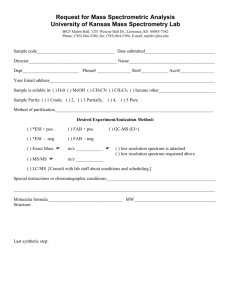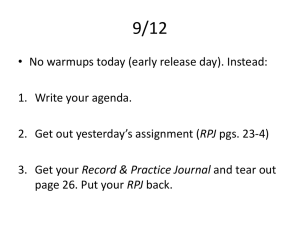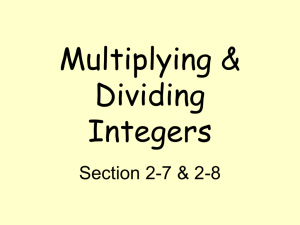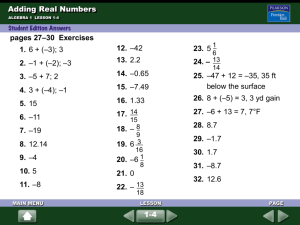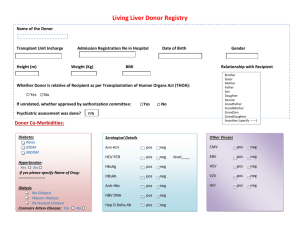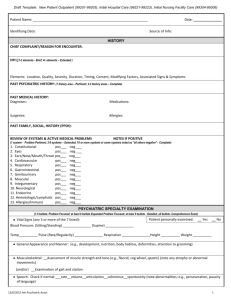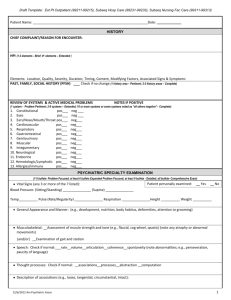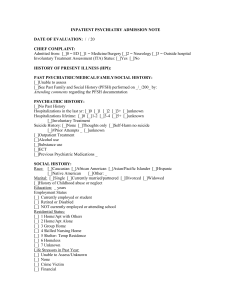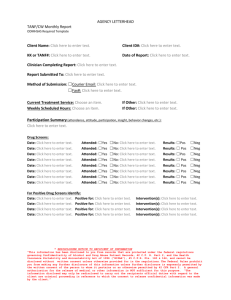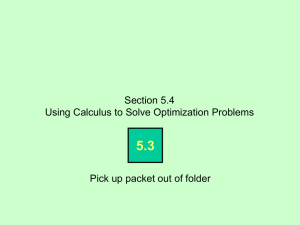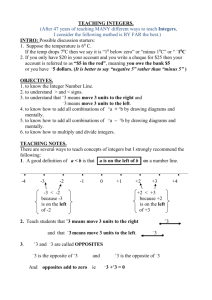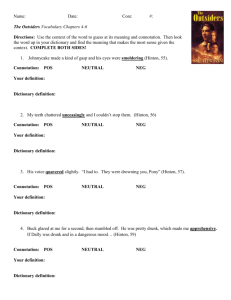Connotation & Idioms Worksheet: High School English
advertisement
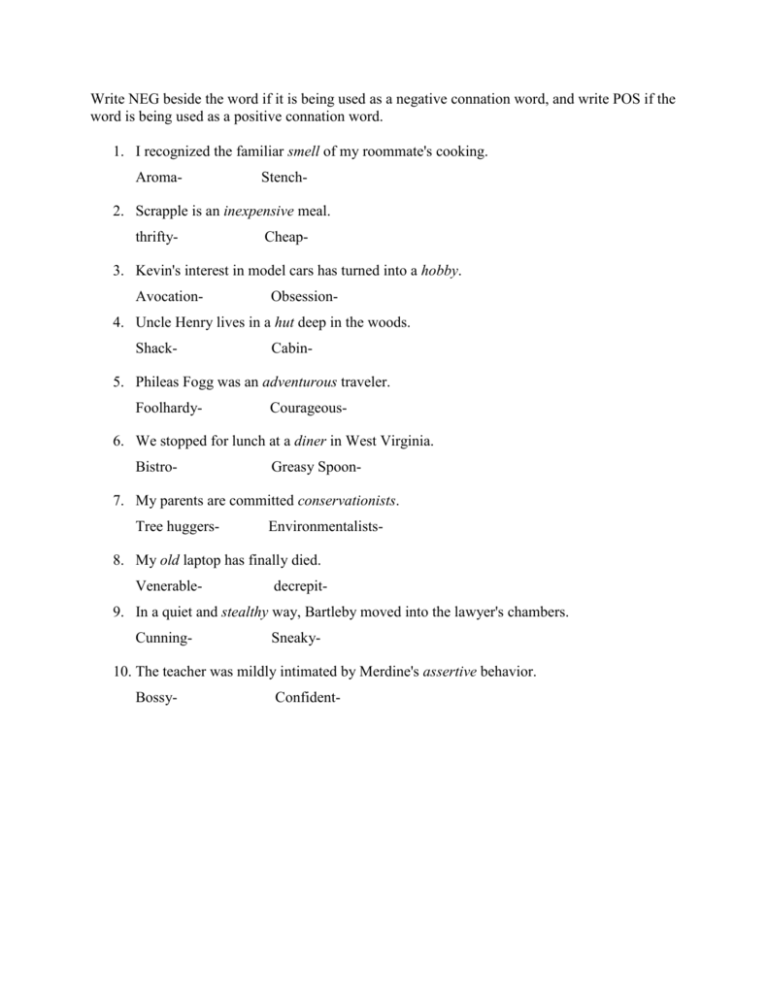
Write NEG beside the word if it is being used as a negative connation word, and write POS if the word is being used as a positive connation word. 1. I recognized the familiar smell of my roommate's cooking. Aroma- Stench- 2. Scrapple is an inexpensive meal. thrifty- Cheap- 3. Kevin's interest in model cars has turned into a hobby. Avocation- Obsession- 4. Uncle Henry lives in a hut deep in the woods. Shack- Cabin- 5. Phileas Fogg was an adventurous traveler. Foolhardy- Courageous- 6. We stopped for lunch at a diner in West Virginia. Bistro- Greasy Spoon- 7. My parents are committed conservationists. Tree huggers- Environmentalists- 8. My old laptop has finally died. Venerable- decrepit- 9. In a quiet and stealthy way, Bartleby moved into the lawyer's chambers. Cunning- Sneaky- 10. The teacher was mildly intimated by Merdine's assertive behavior. Bossy- Confident- denotation [dee-noh-tey-shuh n] noun the explicit or direct meaning or set of meanings of a word or expression, as distinguished from the ideas or meanings associated with it or suggested by it; the association or set of associations that a word usually elicits for most speakers of a language, as distinguished from those elicited for any individual speaker because of personal experience. connotation [kon-uh-tey-shuh n] noun a. the associated or secondary meaning of a word or expression in addition to its explicit or primary meaning: A possible connotation of “home” is “a place of warmth, comfort, and affection.”. b. the suggesting of additional meanings by a word or expression, apart from its literal meaning English standard- 11.3d IDIOMS: a language, dialect, or style of speaking peculiar to a people. A figure of speech- cannot be taken in the literal sense. Match the idiom to the appropriate meaning. ____1. Avoiding the main issue ____2. To keep discussing an issue that has already ended ____3.will do something immediately ____4.making a situation worse ____5.to be very near a goal but to fall short ____6.complain about a loss from the past ____7.what someone has that can eat and digest anything ____8.leg cramp ____9.an aggressive attack on someone from a group ____10.having a bad day ____11.be patient ____12.fix a problem with someone ____13.have a problem to discuss with someone ____14.die ____15.someone who is not very intelligent ____16.everyone is facing the same challenge ____17.a rare event of occurrence ____18.large number of people falling ill or dying ____19.a duplicate ____20.something outstanding A. B. C. D. E. F. G. H. I. hold your horses close but no cigar beat around the bush bone to pick once in a blue moon adding fuel to the fire kick the bucket at the drop of a hat beat a dead horse J. all in the same boat K. doozy L. Charlie horse M. Bury the hatchet N. Got up on the wrong side of the bed O. Feeding frenzy P. Cast-iron stomach Q. Dropping like flies R. A dead ringer S. Not playing with a full deck of cards T. Crying over spilt milk KEY Write NEG beside the word if it is being used as a negative connation word, and write POS if the word is being used as a positive connation word. 1. I recognized the familiar smell of my roommate's cooking. Aroma- POS Stench- NEG 2. Scrapple is an inexpensive meal. thrifty- POS Cheap-NEG 3. Kevin's interest in model cars has turned into a hobby. Avocation- POS Obsession- NEG 4. Uncle Henry lives in a hut deep in the woods. Shack- NEG Cabin- POS 5. Phileas Fogg was an adventurous traveler. Foolhardy- NEG Courageous-POS 6. We stopped for lunch at a diner in West Virginia. Bistro- POS Greasy Spoon-NEG 7. My parents are committed conservationists. Tree huggers- NEG Environmentalists-POS 8. My old laptop has finally died. Venerable- POS decrepit- NEG 9. In a quiet and stealthy way, Bartleby moved into the lawyer's chambers. Cunning- POS Sneaky-NEG 10. The teacher was mildly intimated by Merdine's assertive behavior. Bossy- NEG Confident-POS denotation [dee-noh-tey-shuh n] noun the explicit or direct meaning or set of meanings of a word or expression, as distinguished from the ideas or meanings associated with it or suggested by it; the association or set of associations that a word usually elicits for most speakers of a language, as distinguished from those elicited for any individual speaker because of personal experience. connotation [kon-uh-tey-shuh n] noun c. the associated or secondary meaning of a word or expression in addition to its explicit or primary meaning: A possible connotation of “home” is “a place of warmth, comfort, and affection.”. d. the suggesting of additional meanings by a word or expression, apart from its literal meaning English standard- 11.3d IDIOMS: a language, dialect, or style of speaking peculiar to a people. A figure of speech- cannot be taken in the literal sense. Match the idiom to the appropriate meaning. C 1. Avoiding the main issue I 2. To keep discussing an issue that has already ended H 3.will do something immediately F 4.making a situation worse B 5.to be very near a goal but to fall short T 6.complain about a loss from the past P 7.what someone has that can eat and digest anything L 8.leg cramp O 9.an aggressive attack on someone from a group N 10.having a bad day A 11.be patient M 12.fix a problem with someone D 13.have a problem to discuss with someone G 14.die S 15.someone who is not very intelligent J 16.everyone is facing the same challenge E 17.a rare event of occurrence Q 18.large number of people falling ill or dying R 19.a duplicate K 20.something outstanding A. hold your horses B. close but no cigar C. beat around the bush D. bone to pick E. once in a blue moon F. adding fuel to the fire G. kick the bucket H. at the drop of a hat I. beat a dead horse J. all in the same boat K. doozy L. Charlie horse M. Bury the hatchet N. Got up on the wrong side of the bed O. Feeding frenzy P. Cast-iron stomach Q. Dropping like flies R. A dead ringer S. Not playing with a full deck of cards T. Crying over spilt milk
